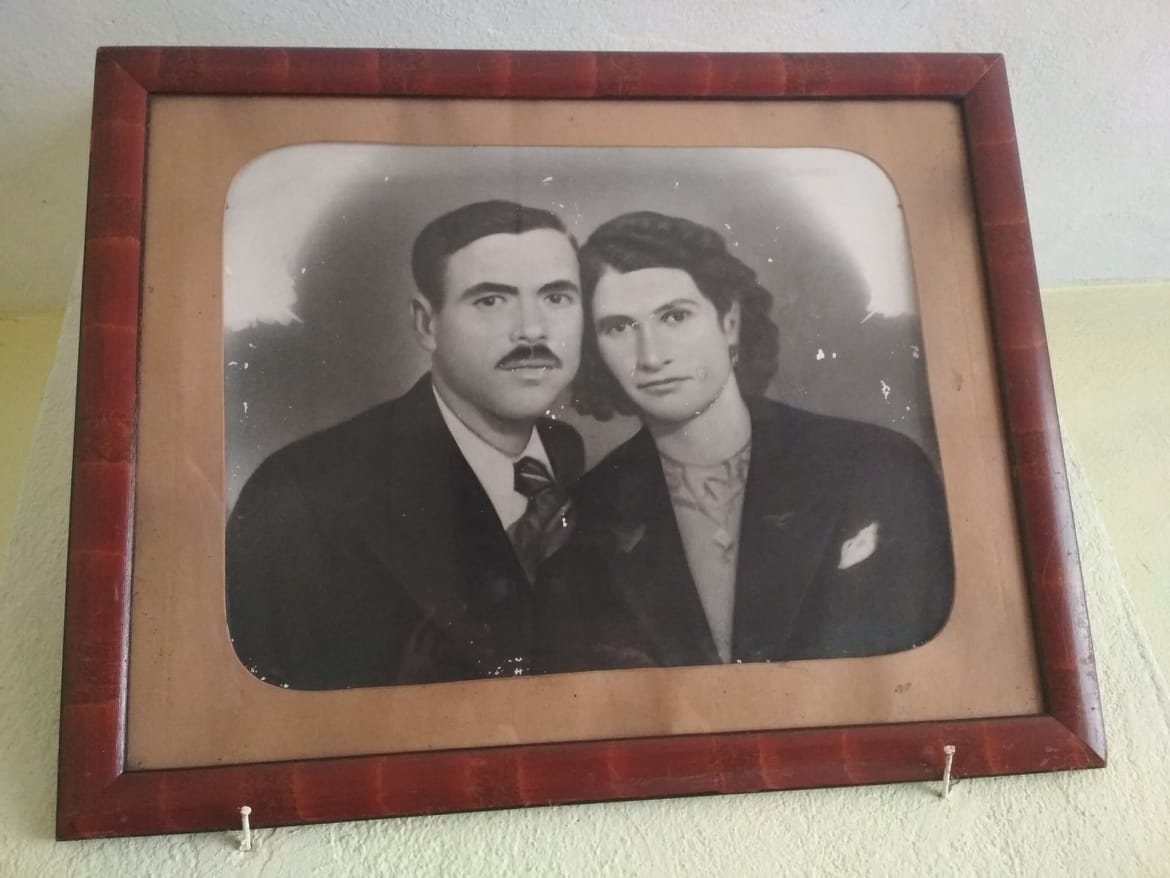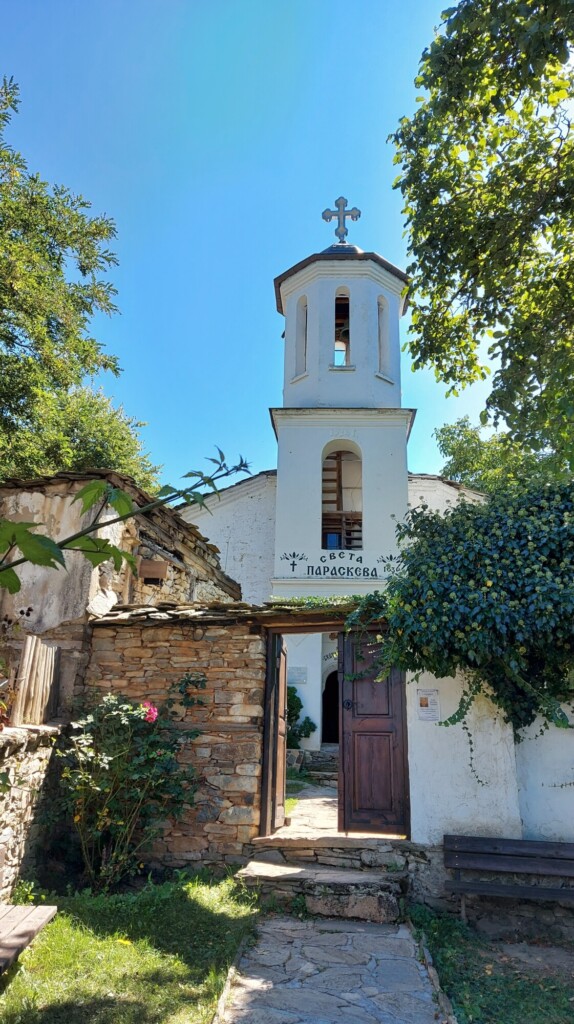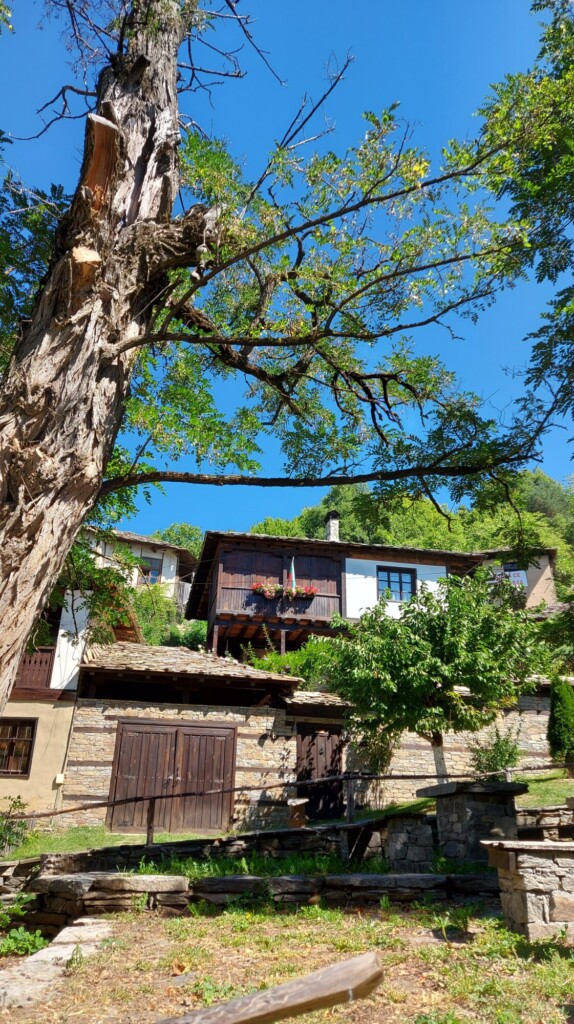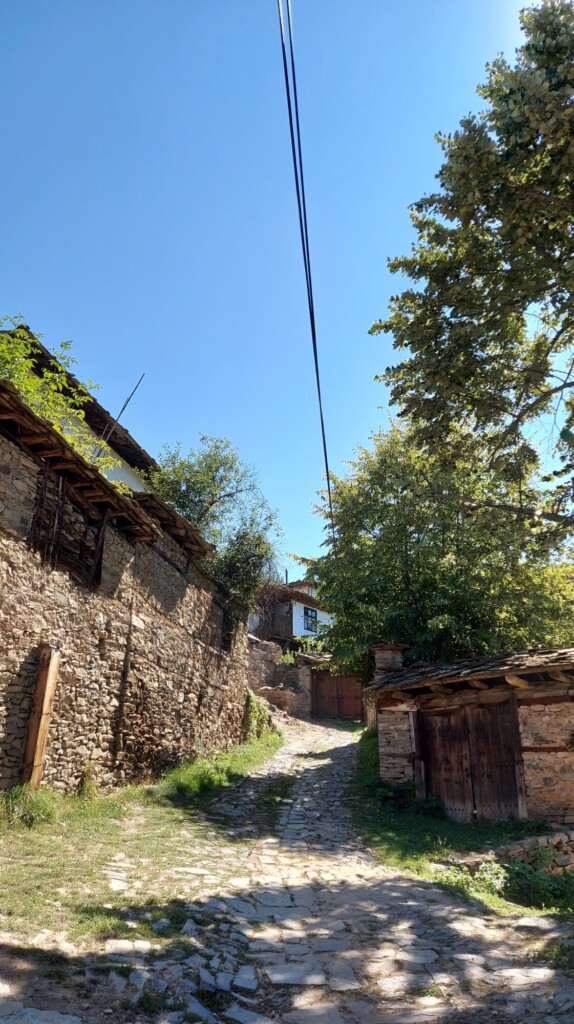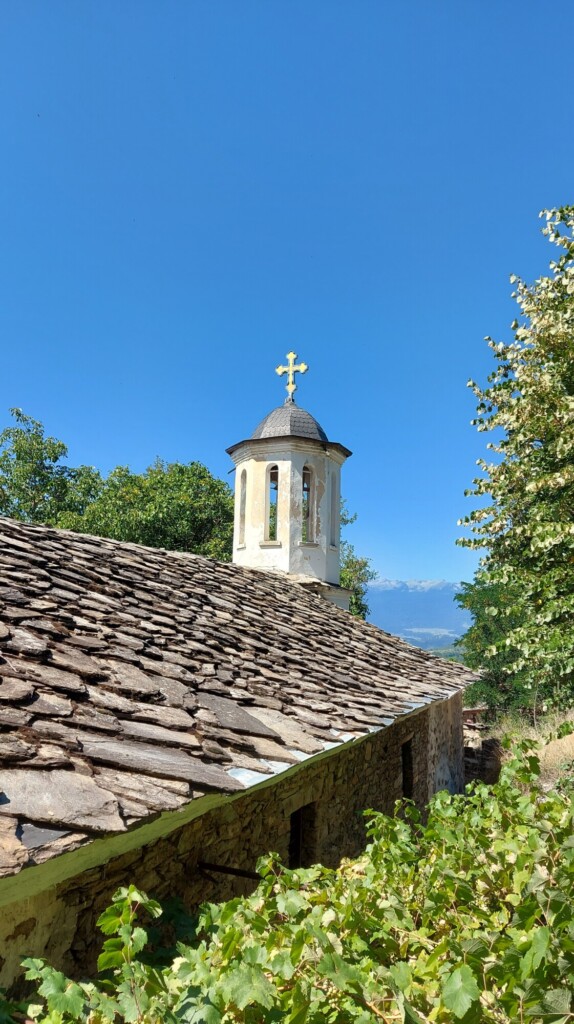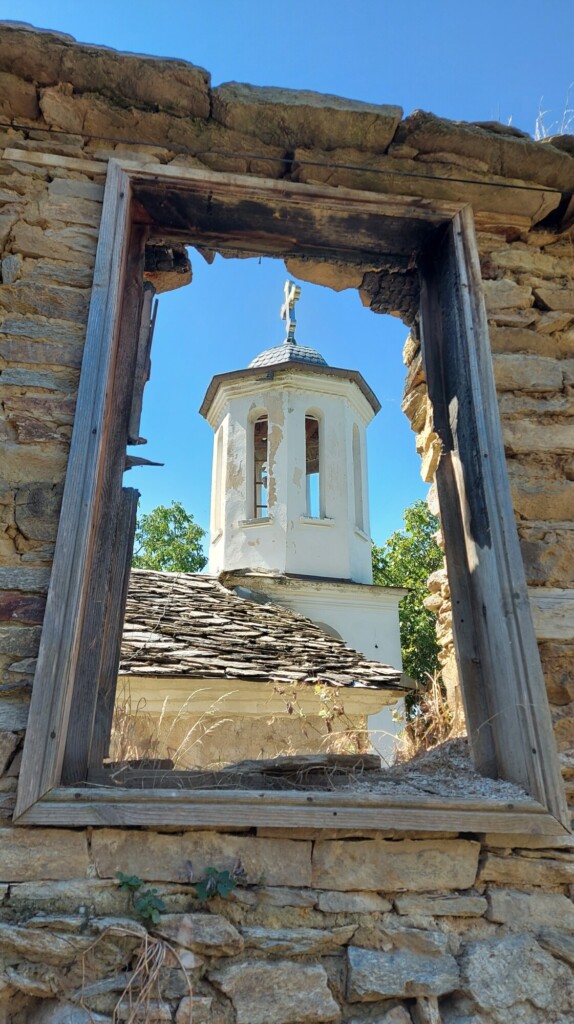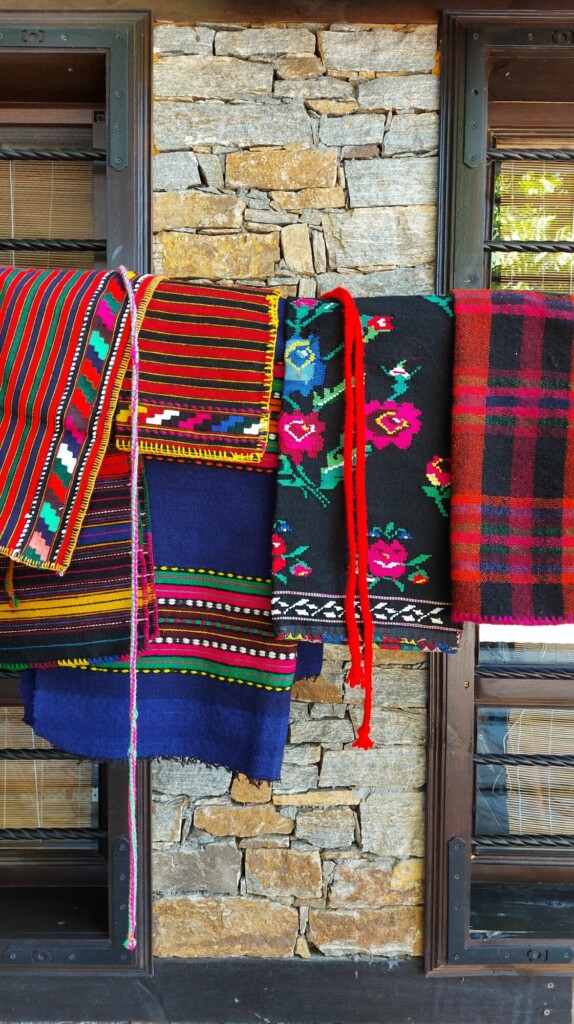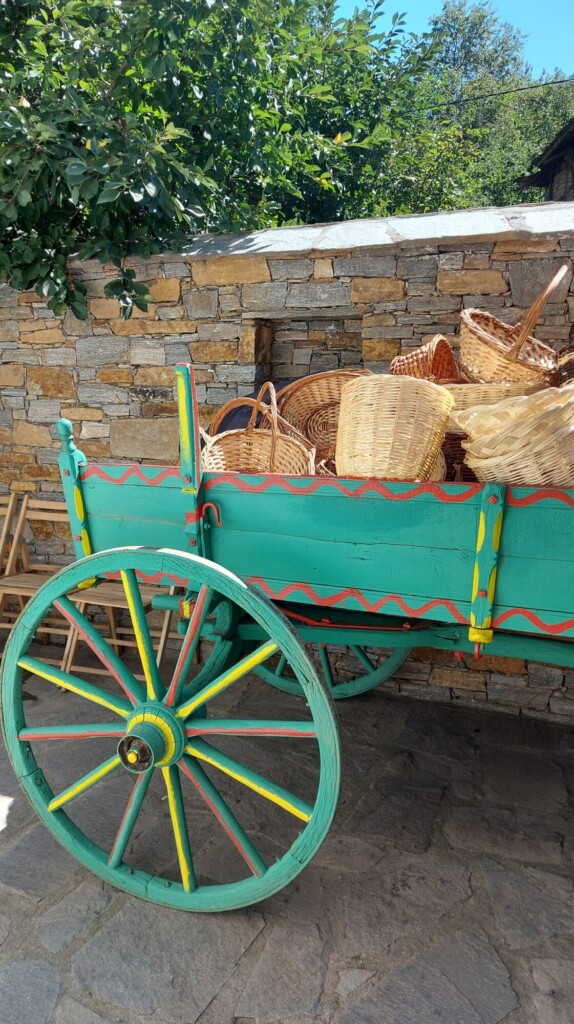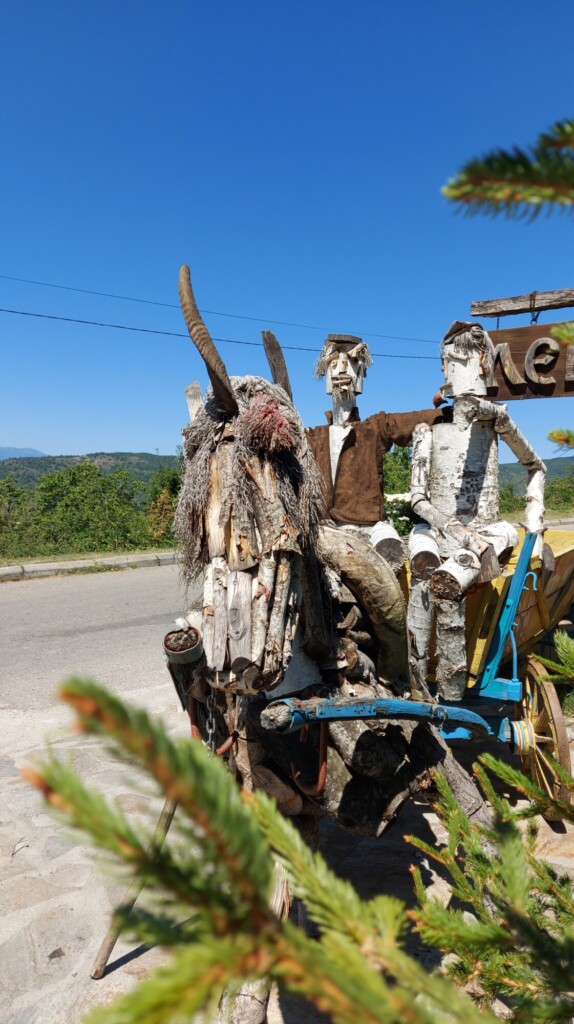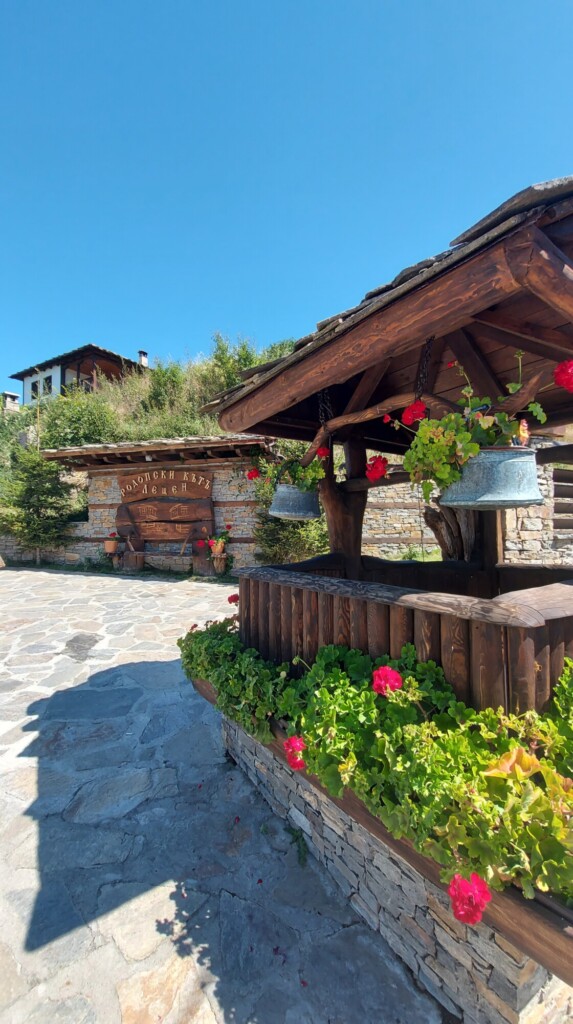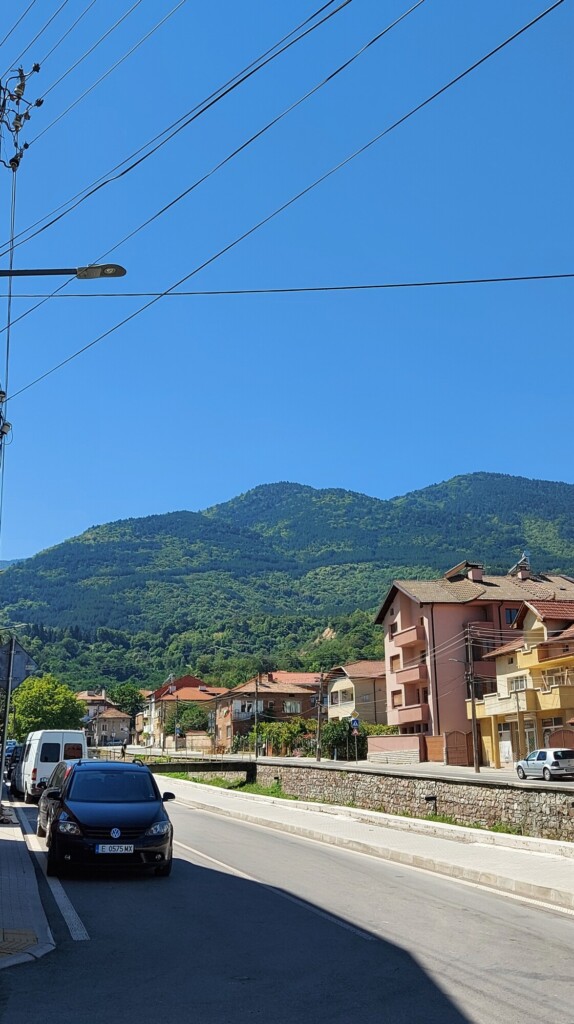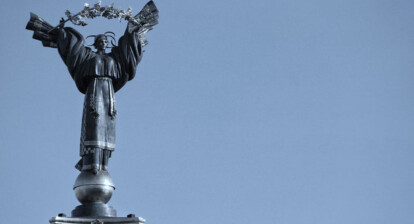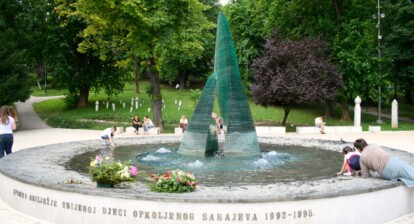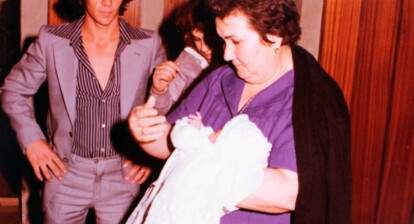In Liliana’s grandparents’ home in Bulgaria, many objects carry traces of the period after the Balkan wars. Especially the home altar in the living room is evidence of the happy end of a post-war journey which ended in the picturesque and hospitable town of Gotse Delchev.
Where Time Almost Feels Frozen
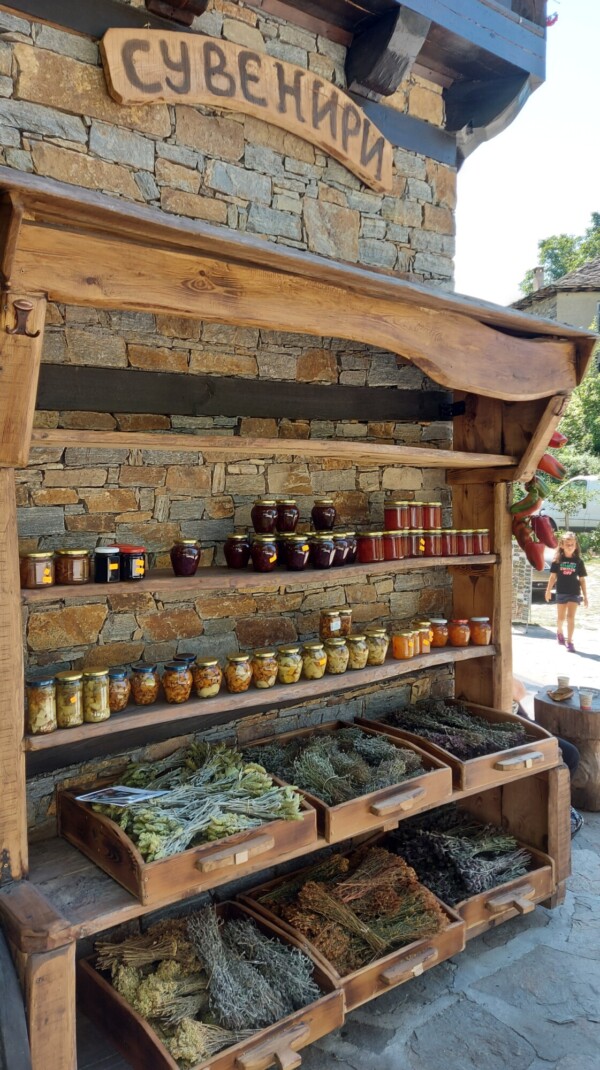
A stand at the market in Gotse Delchev (Photo: Private)
Every time I enter the town, I smell the wood fuel stored in front of locals’ houses, used for heating during winter. I also smell the inviting aroma of roasted peppers and other simple yet astonishingly delicious home-cooked food with ingredients from the locals’ gardens. It’s impossible not to pay attention to the idyllic tranquillity of a small town, where time is a relative term and life almost seems frozen. While we, people living in big cities, are tempted by the advertisements for weekend getaways or weekly retreats, locals from Gotse Delchev don’t need them. There are usually few people walking on the central commercial street Targovska, where the banks, the telecom suppliers and some appeal stores are situated. The open-air town market, which takes place twice a week, is where the crowds and life are. Residents from the town and the surrounding villages offer their home-grown production there. Back in the day, they were arriving with their horses, mules and donkeys. Nowadays, they use marshrutkas, wagons or cars, and offer foodstuffs, more delicious than any overpriced “organic” item on the shells of a mass supermarket, and handicrafts made of wood, metal and glass.
A Peaceful Town and a Rebellious Figure
Every year, the peaceful town of Gotse Delchev (known as Nevrokop up to 1951) in Southern Bulgaria becomes my
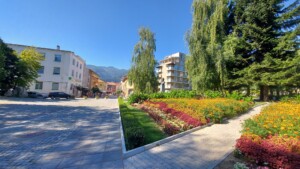
The central street in Gotse Delchev (Photo: Private)
home for a few weeks. Some associate it with the proximity to the Greek border and consider it a lovely little town to have a coffee before their summer vacation. However, the ones savvy in Balkan history rightfully think of the controversial historical figure Gotse Delchev – one of the leaders of the Internal Macedonian Revolutionary Organization (IMRO). This secret revolutionary society was active in Ottoman territories in the Balkans at the end of the 19th and the beginning of the 20th century.
My Grandparents’ Home – a Gate to the Family’s Past
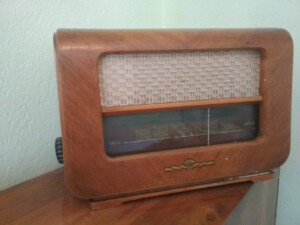
Radio Orion 420A 040 was among the most valuable items in the grandparents’ house (Photo: Private).
To me, the mountainous town is a reconnecting gate to my family’s past in the first place. Every object in my grandparents’ home in Gotse Delchev reminds me of a completely different era. It did not go through reconstruction, meaning my relatives once used and touched every bit of the house. Moreover, the annual visit makes me honour the fact that my grandparents had learnt to live life simply. Their living was unmodern, not because they aimed to be minimalists, but because even having what they needed and nothing more was barely achievable.
Facing the Legacy of War
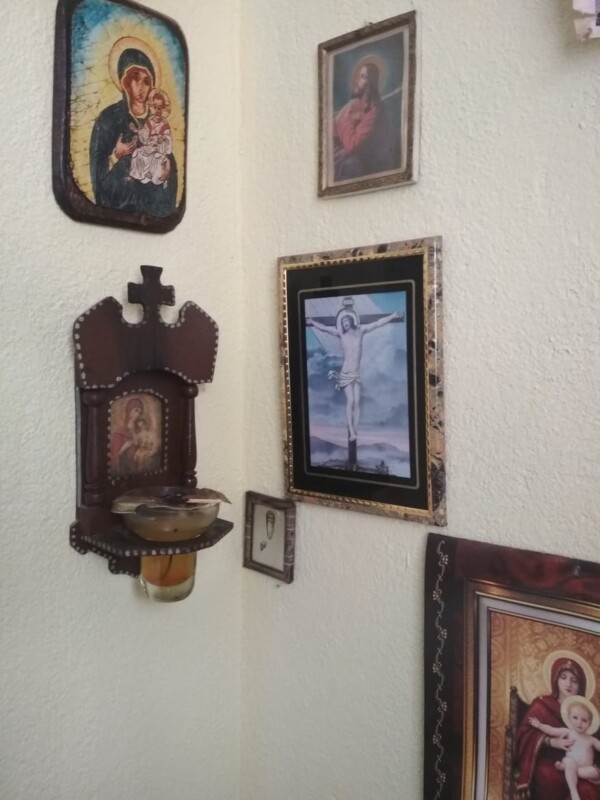
The carefully decorated home altar in my grandparents’ living room (Photo: Private).
Nowadays, we learn about the wars in the past with a sense of curiosity and relief, as if they were a sci-fi movie. Some even use war narratives in video games as replicating wars there is considered entertaining and dynamic. Wars never ended on a global scale, and 2022 served as a “wake-up call” for us Europeans demonstrating how fragile peace is. Obviously, thinking about wars leads to everything but comfortable feelings. However, that was precisely what I decided to do while observing my grandparents’ home altar a few years ago. That’s when I explored my family history and found out how my grandparents ended up living in Gotse Delchev. Before that, I had taken the home altar for granted – as another piece of art that decorates the walls, along my grandmother’s tapestry. Once I enter into their house, I go upstairs to the second floor and immediately find myself in the living room. It has simple furniture – a wooden table with four chairs, some drawers, a mirror. It’s also the place where the home altar is.
My Grandfather’s Journey
My Grandmother’s Journey
A New Reality for Metaksa and Petar
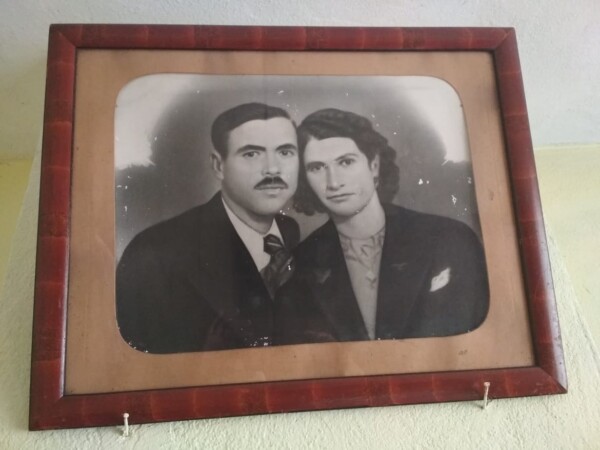
My grandparents’ family portrait, located in their living room in Gotse Delchev (Photo: Private)
The pogrom and terror intersected the lives of my grandparents Petar Sofkov (Georgi’s son) and Metaksa Sarbokova (Iliya’s daughter). As a child, Peter started working for a Turkish shoemaker, where he mastered the Turkish language and became one of the best shoemakers in Nevrokop with his own shop with apprentices and journeymen, which was nationalised in 1946. Although in 1912-1913 he was too young, his family kept mentioning the unfortunate events and he was aware of the story directly related to the beginning of his life. I did not have the chance to meet and get to know him. Metaksa was engaged in tobacco growing, and later became a link manager in a cooperative farm. When it was nationalised, they became members of cooperatives with newly purchased Bulgarian land and animals. For the rest of their lives, they lived in Nevrokop, later renamed Gotse Delchev.
A way to Show Gratitude
Metaksa and Petar were Orthodox Christians and created a home altar in their living room, as being impeccably faithful was their way to show gratitude for the luck they have had on their way to Gotse Delchev. In accordance with Christian beliefs, they believed that candles were symbols of the presence of Christ, the light of the world. Therefore, they were aiming to regularly keep a candle lit there, next to the image of Jesus or Mother Theresa. Such an altar is not part of the home of the average Bulgarian. Instead, nowadays, in most homes there is a designated space for one icon – for instance, Christ Pantokrator, next to which there is a painted Easter egg in an egg stand, kept in the house until the next Easter. According to official statistics, of Bulgaria’s total population of 6 519 789 as of a September 2021 census, a total of 4 219 270 said that they were Christians. Similarly to Anna from Chania and Maria from Griva’s thoughts on religion in Greece, I believe that my particularly religious compatriots tend to come from rural areas, as opposed to the capital city Sofia.
A Humble Reminder: The Annual Home Visit
I don’t have any core memories related to my grandparents’ home altar as I have never spent more than a few weeks at their house, mostly in summer. However, this did not prevent me from thinking: they certainly didn’t have the privilege of choosing a location to settle when their families left their entire lives behind. In such dramatic situations, they must have been craving a safe place, having a roof over their heads and some bread to feed their families. The very basic essentials, which we take for granted, were enough. The annual visit to their home serves as a great reminder of what matters and how little our day-to-day worries are in the grand scheme of things. And despite the lack of any personal connection between me and the altar, it being the place of key significance in their home can be felt by me, and it serves as a reminder to feel gratitude more often.

